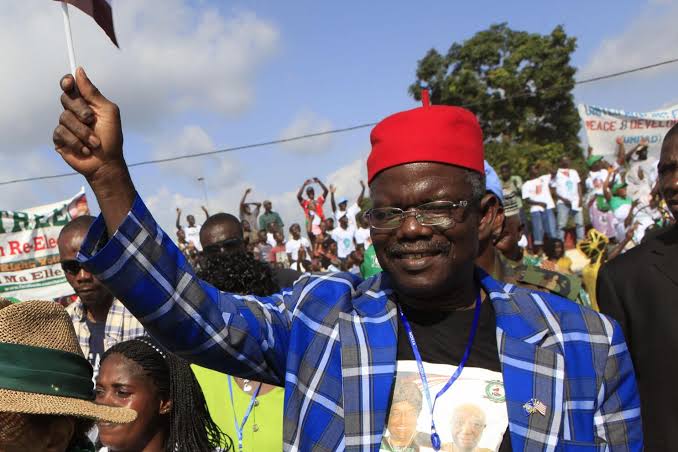Entertainment
Ex-Liberian warlord, Prince Johnson passes away at 72

Prince Johnson, a former Liberian warlord notorious for his role in the country’s brutal civil wars, passed away at the age of 72.
His death, caused by complications from high blood pressure, was confirmed by his family spokesperson, Wilfred Bangura.
Johnson gained global infamy for his involvement in the torture and execution of former Liberian President Samuel Doe in 1990, an incident gruesomely captured on video.
In the footage, Johnson is seen drinking beer and watching as his men mutilated Doe, slicing off his ear before killing him. The video became one of the most harrowing symbols of the atrocities committed during Liberia’s civil wars.
Despite recommendations from Liberia’s Truth and Reconciliation Commission for his prosecution, Johnson never faced trial.
Instead, he transitioned into politics, serving as a senator and wielding significant influence as a political kingmaker until his death.
Liberia’s civil wars, which raged from 1989 to 2003, left more than 200,000 people dead and displaced over a million. Countless others suffered from mutilation, rape, and other atrocities.
Johnson’s death marks the end of a controversial and turbulent chapter in Liberia’s history, one that continues to cast a shadow over the nation’s efforts to achieve justice and reconciliation.
The Truth and Reconciliation Commission listed Johnson among eight leaders of warring factions, saying his group had committed massacres, torture and rapes. It also named him first on its list of “most notorious perpetrators”.
While Johnson avoided prosecution, he later described regretting Doe’s murder and seeking reconciliation with his family.
More recently, Johnson voted in favour of setting up a long-awaited war crimes court earlier this year. Once operational, the court will be backed by international institutions including the United Nations.
The aim is to deliver long overdue justice to victims of the civil wars, but critics have said it risks reopening old wounds.
Johnson remained in politics after the wars ended and was elected as a senator in his Nimba county stronghold in 2006. He went on to play a role as kingmaker in various presidential elections.
He threw his support behind former president Ellen Johnson-Sirleaf in 2011, then endorsed George Weah in the run-off against Sirleaf’s ruling party successor Joseph Boakai in 2017.
However, he switched his support to Boakai in the 2023 election in which Boakai defeated Weah in a run-off.
Boakai praised Johnson’s contributions to the national discourse.
“While we may not have always agreed on the path our nation pursued, we recognize the impact of his work and his dedication to representing the people of Nimba County,” he said in a statement after Johnson’s death.





















